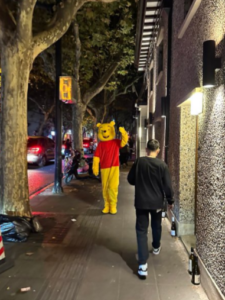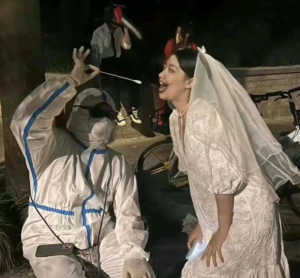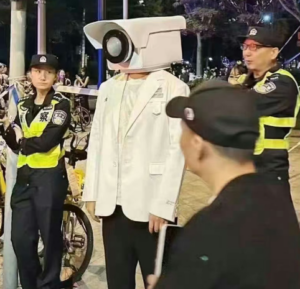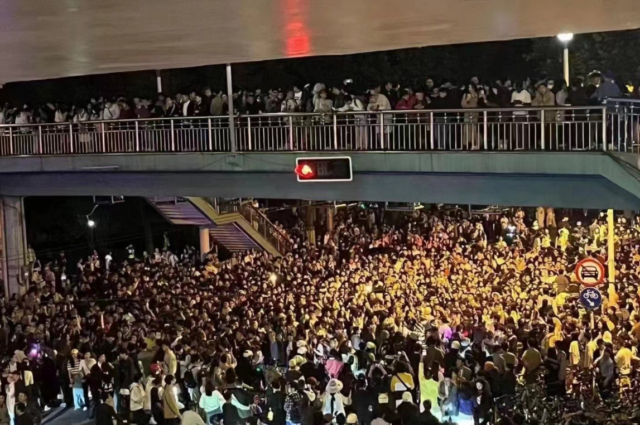NEW DELHI: China’s glitzy commercial capital Shanghai is celebrating Halloween despite such public displays of Western culture being increasingly frowned upon. On Oct. 31, when the celebrations kicked off, Weibo tracked revellers in the streets wearing costumes reflecting customary Halloween.
But there were also the not-so-politically-correct out to make a point. Some dressed as the cartoon character Winnie the Pooh, a political touch-me-not in China since 2018 when Xi Jinping and then US President Obama walking together invited comparisons over the former’s portly vs the latter’s slim frame. Pooh disappeared from China’s vibrant social media but now appears to be making a comeback with official approval, why it’s not clear.

Covid was another favourite. Weibo featured a girl clad in white paper bringing back memories of the White Paper Revolution earlier this year, that signalled public anger and pushback against the government’s tough ‘Zero Covid’ policy. Within days the authorities ended the policy, but without preparation resulting in a steep rise in Covid infections and deaths. Police were seen stopping and escorting away some people dressed as Covid workers. Videos of their apprehension swiftly circulated on social media platforms.
There were also those taking a subtle dig at the government’s pervasive surveillance apparatus: a man turned up with his head enclosed in a camera. He was underscoring the lack of freedom and the constant pressure young Chinese face in conforming to official norms of behaviour including long working hours.
A user on Weibo wrote “The spirit of Shanghai’s youth is unyielding. Regardless of the number of police officers deployed, they find freedom worthless without fun. They simply want to say, “Long live freedom!”
The ‘Camera Man’ was quietly taken away by the police.
Somebody dressed up as Taiwan’s President Tsai Ing Wen, cocking a snook at government policy that seeks to demonise her independent stand. There were also people clad in saffron robes, a nod to Buddhism, China’s fastest growing religion. It could also be intended to signal opposition to Xi Jinping’s tough Tibet policy. 
Many took to Weibo to record their regret at not being able to make it to Shanghai for Halloween. “Why couldn’t I be there?”, lamented one, while another noted that “The whole internet has gone crazy.”
But die-hard supporters of the state also made their presence felt. Xiaohongshu, a Chinese social media platform centred around photo sharing, is reported to have censored Halloween-related content. Some so-called nationalist bloggers criticised the Shanghai event, describing it as “encroachment of Western culture”.
Several Chinese cities even imposed restrictions on the celebration of Christmas and other Western festivals due to concerns about the impact on Chinese culture.
Blogger “Ziwu Xiashi” argued that Halloween has novelty value, and is also probably seen as fashionable and avant-garde. Comparatively, they may see traditional customs as antiquated. This perspective, he claims, stems from a “national inferiority complex.”
As a Weibo blogger remarked, “Halloween in Shanghai provides a much more captivating experience than its Western counterpart.”
Research Associate at StratNewsGlobal, A keen observer of #China and Foreign Affairs. Writer, Weibo Trends, Analyst.
Twitter: @resham_sng





